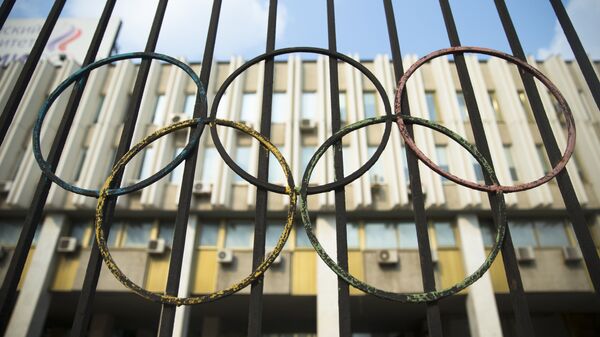Sputnik: The Court of Arbitration for Sport has dismissed the appeals of 47 Russian athletes, causing some to say that this will diminish competition and attention to the Games. Do you agree with that statement?
Christof Wieschemann: No I did not. It turns the burden of proof upside down. We have to consider that the International Olympic Committee is a monopolist and subject to European competition and anti-trust law and the invitation procedure is a restriction for that, so it was very disappointing for me to read that the panel is of the opinion that the athletes did not establish that the procedure was unfair or discriminating, it is from my point of view absolutely wrong and it turns the burden of proof upside down. As a monopolist, the IOC has to prove that the procedure is in a proper manner and free of discrimination and the invitation procedure is mandatory exclusively for Russian athletes and not for other countries and depends on criteria we don't know and which are not disclosed, so it is unfair and discriminating under European anti-trust and competition law from my point of view.
READ MORE: 'Disguised Sanctions': Lawyers on IOC Decision on Russian Athletes
Sputnik: The athletes though were not allowed to participate in the Olympic Games, did not make any violations of the anti-doping rules as per the CAS, so why were they dismissed then?
Christof Wieschemann: We don't know, we have seen the IOC published a criteria catalogue on its website and mostly it's, most of the criteria are depending on the allegation from Dr. Rodchenkov and from the Mclaren report but I've been a part of the first hearing in Lausanne two weeks ago. I'm absolutely sure and convinced that someday it will come out, that in very important, detailed questions, Dr. Rodchenkov lied and that McLaren conducted its own investigations not in a proper manner and not in a diligent way. We don't know why the athletes were dismissed. For me, it's disappointing that we claimed and requested for different documents since three months and the IOC and WADA refused to disclose them to the athletes and to the public. We don't know why they are dismissed. We don't have any reason to believe that they were guilty of an anti-doping rule violation in the past.
READ MORE: Kremlin Regrets CAS Decision on Russian Athletes' Appeals
Sputnik: Now many experts have called the decision to ban Russia from the Olympics "politically motivated," would you agree with that?
Christof Wieschemann: Yes, of course I agree with that. The decision would have been different if not Russia would have been concerned but any other state in the world.
Sputnik: What's the future for the IOC, WADA and the Olympic Games? Do you see a future for them or does the whole of the Olympic movement, WADA, IOC need to be totally revamped now moving forward? It's never going to be the same again is it?
Christof Wieschemann: It is for me a proof that we need a totally new approach to organize such events and to organize great sports federations and I wonder if it makes sense to discuss the matter with the European Commission, whether it is an abuse of market power. The International Speed-skating Union has just suffered an important defeat at the European Commission and maybe it's the IOC's turn next and I would wonder if it will discuss it with the European Commission.
READ MORE: Russia May Initiate Reforms of WADA, IOC After 2018 Games – Lower House
Sputnik: When it comes to medically checking the samples, the samples are checked by individuals from the same country. Now wouldn't we be better served if the samples were checked by neutral countries, from the ones where these matches are actually taking place? If he's a Russian athlete he needs to be checked by a German authority or if he's a UK athlete he needs to be checked by an Austrian authority.
Christof Wieschemann: I laugh because it is exactly my proposal I discussed in the past with different anti-doping authorities. It would make sense that, as you proposed, Germany would test the Russians, the Russians the Italians, the Italians the Swedish and the Swedish the British and so on. It would be better than the procedure we have at the moment.
The views and opinions expressed by Christof Wieschemann are those of the speaker and do not necessarily reflect those of Sputnik.



